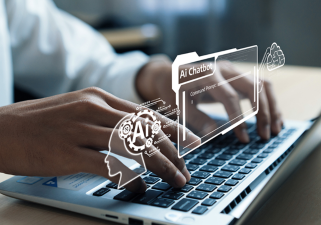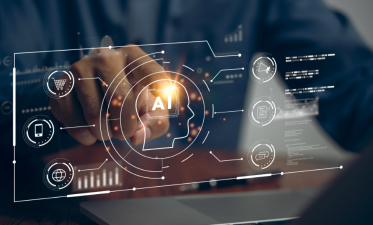
Human collective intelligence surpasses individual intelligence, but traditional collaboration struggles. AI offers new opportunities. Robots struggle to grasp the subtle and intangible social cues that underlie human group dynamics, and humans are often skeptical of overly interfering AI systems. Nevertheless, humans have long recognized that group collaboration can harness collective wisdom and often achieve problem-solving results that surpass the mere sum of individual wisdom. The ancient Greek philosopher Aristotle noted that the collective judgment of many ordinary people, working together, is often superior to that of a single great individual.
Artificial intelligence is the greatest technological revolution humanity has ever faced
Science and technology are the primary productive forces, and every advancement in human society has been driven by technology! The invention of smelting technology led to humanity's transition from nomadic to agricultural society; the invention of the steam engine led to its transition from agricultural to industrial society; the invention of the internet led to its transition from industrial to information society; and the invention of artificial intelligence (chatGPT) has led to its transition from information society to a technologically advanced society! So, what is artificial intelligence? Artificial intelligence is a computer science-based technology that emulates human intelligent behavior and judgment processes, enabling computers to possess certain capabilities that humans consider intelligent. Artificial intelligence technology primarily encompasses the following areas:
- Machine Learning: Machine learning is an algorithm capable of recognizing complex patterns. These algorithms are trained on vast amounts of data and learn new patterns and knowledge from this data. Machine learning and deep learning are demonstrating capabilities that surpass human intelligence. Many of the logical reasoning capabilities of chatGPT are beyond the comprehension of even the researchers who developed it.
- Natural Language Processing: Natural Language Processing is a technology that enables computers to understand human language. This technology enables computers to recognize, comprehend, and generate natural language. Human-computer interaction is becoming increasingly realistic and simple, and humans and machines are increasingly sharing a common language and rational thinking.
- Computer Vision: Computer vision is a technology that enables computers to understand images and videos. Relying on complex algorithms and models, this technology enables computers to analyze and process images, enabling machines to understand and comprehend the world, helping humans better understand the world and create a better future.

The future is here! Artificial intelligence is arguably the greatest technological revolution humanity has ever experienced. The emergence of chatGPT, in particular, has brought the intelligent world to life for everyone, offering a glimpse into what the future holds!
In the future, there will be no industry or individual unaffected by AI
Artificial intelligence technology will play an increasingly important role in human society. It's safe to say that there won't be any industry untouched by AI. From self-driving cars to intelligent robotic nursing care, and from connecting smart machines to personal digital assets, AI will bring greater convenience to humanity while also presenting new opportunities and challenges. For example:
- Smart Production: AI can help automate many daily tasks, such as production line operations, logistics management, and customer service. Just 5% of humans plus smart machines can meet society's material needs. In the future, machines will produce machines, and machines will produce products. Humans and smart machines will achieve a clear division of labor: humans will be responsible for innovation, while machines will be responsible for production.
- Smart Healthcare: In the future, AI will help doctors diagnose diseases quickly and accurately, improving medical efficiency and quality. Furthermore, computer-assisted automated machines can enhance the precision and safety of surgeries.
- Autonomous Driving: Autonomous driving technology is one application of AI in the transportation sector. It enables vehicles to autonomously identify, judge, and execute tasks on the road. This technology can reduce the incidence of traffic accidents and improve traffic efficiency and comfort.
- Educational Intelligence: AI can automatically develop appropriate courses and teaching materials based on students' learning profiles and interests. This improves teaching effectiveness, reduces educational costs, and meets the needs of diverse learners.
It's safe to say that no industry or individual will be unaffected by AI in the future. Just as smartphones have transformed our lives, AI is poised to transform the world.
Future Outlook for AI
AI technology is becoming a key application across all sectors of society, and its potential for future development is enormous. People's lives and work will become increasingly intelligent. For example, chatGPT is changing people's thinking and behavior. As traditional socioeconomic development models become increasingly difficult to integrate with the trends of AI, from the earliest Microsoft to Google to Tesla to today's chatGPT, the conflicts and contradictions between technology and capital, civilization and barbarism, openness and monopoly will become increasingly acute, and this cannot be stopped by human power! Although some insightful figures, including Stephen Hawking and Elon Musk, worry about the impact AI will have on human society in all aspects and call for its controlled development, the pace of the AI revolution will not be slowed down.
